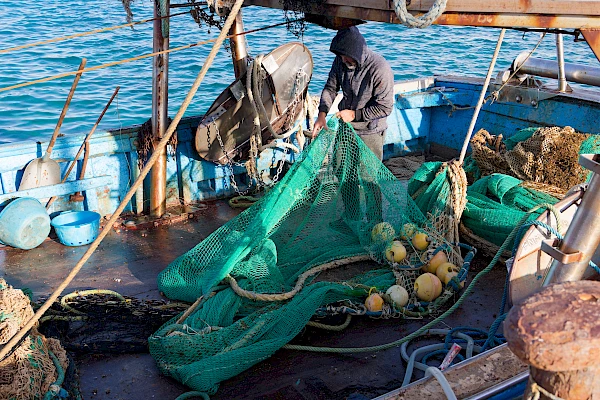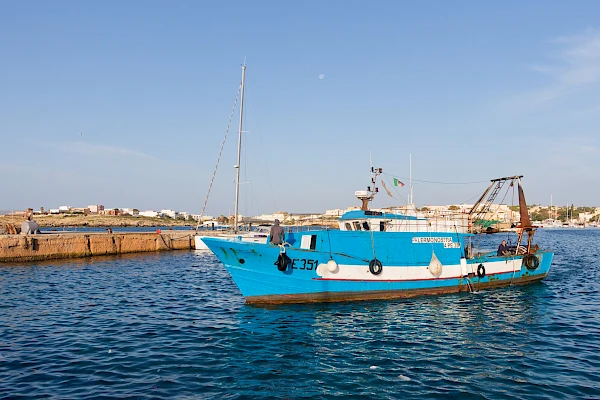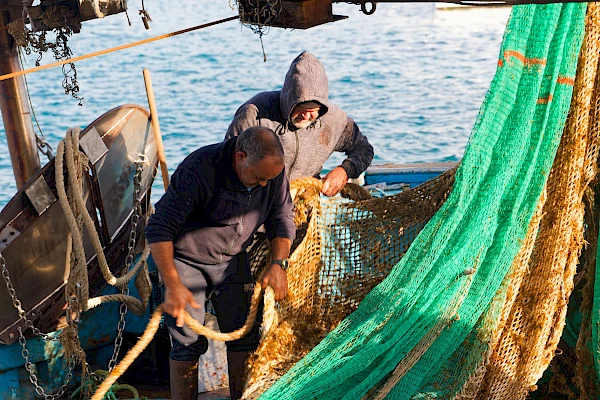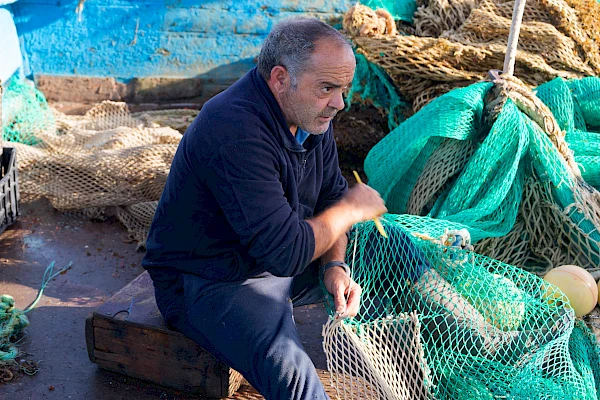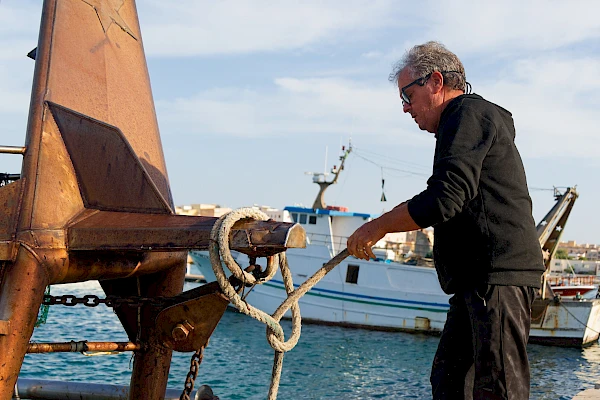The fishermen of Lampedusa face a double challenge: rising costs and strict regulations endanger their existence, while the sea is increasingly polluted by relics of sunken ships. But they fight – for their future and that of the Mediterranean Sea, which nourishes and challenges them.
It is still early; the first rays of the sun bathe the port of Lampedusa in a warm light as Enzo Billeci docks with his 20-meter-long cutter “Palermo Nostra”, laden with the catch of a long night at sea. Tired but content, Enzo talks about his life on the water – and the challenges it brings.
“This boat used to belong to my father,” Enzo begins. ”I started fishing with him when I was ten years old. Back then, life was simpler. We caught mackerel and sardines with fishing nets that we lowered into the water directly behind the boat. It was hard work, but there were enough fish, and the whole community lived off them.”
From prosperity to challenge
But since the 1990s, a lot has changed. “More and more Tunisian fishing boats came into our waters. They were more numerous and could work cheaper,” explains Enzo. The competition forced many fishermen to give up or to reorient themselves. “We had to keep driving further and further out to sea, chasing the fish. Today, only a few of the 15 boats on the island remain.”
Enzo has adapted and now fishes with trawl nets, but that too brings new problems. “The nets are expensive and often tear on the wreckage of migrant boats left in the sea. These are our real concerns – broken nets, polluted water and fewer fish,” he says with a serious voice.
Migration: a different perspective
Enzo views migration, which for many is the predominant image of Lampedusa, with sober composure. “Migrants are nothing new here. People have always come across the sea in search of a better life. And those in distress at sea are rescued – that's a law of the sea,” he says with conviction.
He still gets goosebumps when he thinks back to October 3, 2013.
On that day, an overcrowded boat carrying more than 500 people capsized off the coast of Lampedusa. Over 360 people lost their lives – a tragic event that shocked the island and drew worldwide attention to Lampedusa.
“I arrived just as the rescue was almost over. There were dead people everywhere. Just thinking about it makes me tremble. But the sea can be merciless. Those of us who know it have a responsibility.”
Enzo can feel how the island is changing. “The sunken boats not only leave human tragedies in their wake, but also leave their mark on our daily lives. Their wreckage destroys our nets, and the fuel that enters the sea harms the environment. In addition, fish stocks, especially deep-sea fish, are becoming increasingly scarce.
A fisherman and his sea
Despite all the difficulties, Enzo loves his life. “I would do everything exactly the same way again. Lampedusa is my home, the sea is my life,” he says proudly. His stories are like fairy tales – from dolphins playfully competing for fish to stormy nights at sea that pushed him to his limits.
As a farewell gift, he hands me a bag of freshly caught squid. “Take them, try them. Then you will understand why our sea is so special.” As I leave the harbor, it becomes clear to me:
Enzo represents the resilience and devotion that connects the people of this island to the sea. But their future remains uncertain, buffeted by the waves of history and the whims of the present.
The Lampedusa Project
- Year
- 2024-2025
- Venues
- Lampedusa, Italy
- Blog
